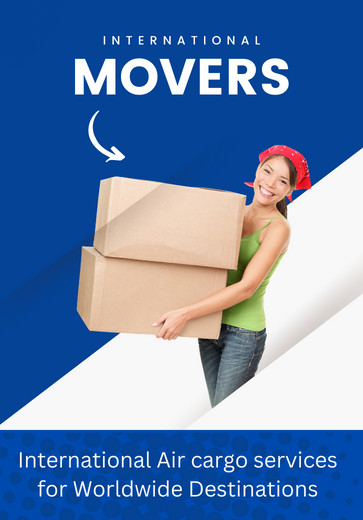Artificial intelligence won't define the marine industry's destiny anymore. It is entirely connected to every stage of delivery, first from importing raw goods to the final delivery to customers' doorsteps.
What precisely is artificial intelligence? It suggests that machines can analyse data independently utilising just datasets which humans have provided, in the most basic technological terms.
How AI works in the shipping industry?
Machine learning frequently starts with big data, which are large volumes of information that individuals would typically find difficult to synthesise. When it comes to shipping, the data may integrate shipping profile information with information on the weather, traffic, as well as the state of the world economy. All of the data is analysed and synthesised by computers, which leads to conclusions which are wiser and much more useful than those reached by people. This encourages the supply chain's growth and expansion.
The shipping industry has used AI for several functions, including making maps of Courier services in Mumbai and enhancing how cargo is loaded into truck beds. Not just these there are more things which need to be focused to highlight the contribution of Artificial intelligence. So, keep reading this content till the end to know more about the contributions: -
1.Accurate Prediction of Shipping Time: -
Perhaps one big file's most obvious benefit is its ability to make exact projections based on past patterns. The length of time it takes for container ships, cars, and planes to move may be calculated using enormous datasets.
Big data might even contain information about the weather, its relative bustle & slowness of the shipping seasons, and traffic congestion in the shipping lanes.
All of these data may be synthesised very instantly by AI, leading to more precise ship time estimations than was previously possible. Additionally, it may foresee potential problems long before they arise, giving distribution network managers enough time to make crucial adjustments.
2.Improved Delivery Time: -
A faster way to transfer products has also been made easier by AI. At various scales, savings that range from a few seconds to several days occur.
Here’s the way how AI improved the delivery time: -
- AI helps Courier services in Mumbai & third-party transporters on such a smaller scale by optimising terminal operations, warehouses, and the last delivery routes.
- AI has increased the productivity of the trucking yard by accelerating the flow of trucks throughout, unloading their cargo, and getting back on the road. Along with that, UPS completely revamped the algorithm used to guide its delivery drivers, deleting quite as many left turns as possible to help with the delivery of a few more packages each day.
- Together, these improvements don't seem to do anything. However, on a massive scale, spanning systems that dispatch thousands of shipments per hour, could produce millions more items and millions that much in revenue.
- Larger changes result in more savings. The location of a new warehouse, for instance, may be determined by logistics businesses using AI to minimise the distance travelled. Trans-oceanic carriers may use predictive AI to avoid clogged shipping lanes or pack their cargo more efficiently to hasten delivery.
3.Increasing Efficiency and Improving Maintenance: -
AI has also aided shippers in more efficiently managing the hardware of their logistics operations. By identifying vehicles as they reach significant milestones or finding faulty equipment, AI may assist with predictive maintenance.
Increasing Efficiency: -
New environmental regulations will increase the reliance of the shipping industry on artificial intelligence. For example, the UN's International Marine Organization will set a 0.5% sulphur limit on fuel oil on container ships as well as other maritime vessels beginning in 2020. Artificial intelligence (AI) may help marine shippers recognise when their cargo ships are already in danger of going over such limits, and improved modelling may help in the development of more environmentally friendly vessels.
Improving maintenance: -
By using AI to manage a ship's environmental performance, it may be possible to reduce illogical fuel use as well as atmospheric carbon and greenhouse gas emissions. Shippers could save money on fuel expenditures and have an impact on the worldwide shipping industry by reducing the inefficiencies & carbon footprint of freight carriers.
4.Making decisions via Human Perception Modelling: -
Artificial intelligence seems to be a feature of autonomous vehicle control (AI). That includes a broad spectrum of transportation-related technology, such as autonomous trucks which can deliver cargo hundreds of miles distant and warehouse robots which can manoeuvre past packed shelves and narrow lanes. The only issue is when autonomous vehicles will be utilised on public roads; they have already been employed in warehouses, according to specialists.
The capacity to respond to aural and visual cues is one need for these robots' ability to replicate human senses. Their ability to analyse information from powerful sensors is crucial to their success. If they can accomplish that, they will be able to successfully replace a sizable portion of the human logistics workforce since they can carry out nearly all of the activities without becoming fatigued or needing compensation or benefits.
5.Enhanced Security: -
The marine industry is also using AI to boost security.Drones are now used by shipping corporations to monitor the region around their facilities. By employing big data to identify common hotspots for package theft or road accidents, logistics companies may customise their services to those areas. Offering locker facilities in apartment lobby spaces.
Artificial Industry is the ultimate future of shipping industry: -
The shipping industry has always been built on a complex network of transportation needs. Management teams, the subject matter experts, nowadays are C-suite leaders because managing every one of these working components is so difficult.If leaders successfully incorporate AI into corporate supply chains, they may be able to build networks that are greater efficient than before.




0 Comments